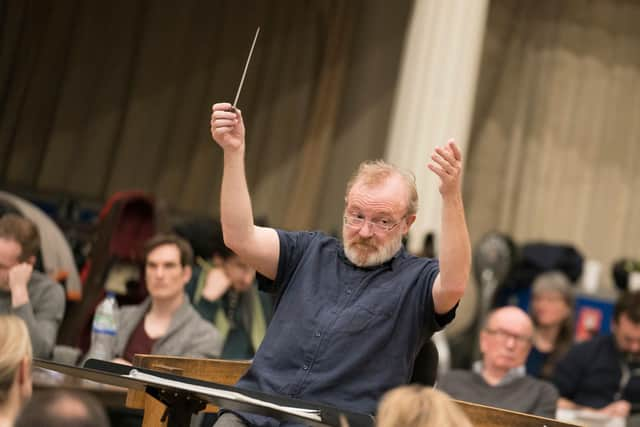Music review: BBC SSO, City Halls, Glasgow
BBC SSO, City Halls, Glasgow ****
Martyn Brabbins squeezed a mountain of music into Thursday’s “Sound of Scotland” BBC SSO programme. It wasn’t all Scottish produce – Brabbins included one of his own compositions – but who would deny honorary status to a conductor who has spent so much of his career north of the border and influenced our musical life?
As successive decades have proven, he has a way with the SSO that reaps rich results, especially where the music itself might require a calm and perceptive mind to extricate its vital essence. Judith Weir’s Heroic Strokes of the Bow, for instance, is a snappy enough realisation of the painting style of Paul Klee, his pictorial dots and dashes reinterpreted here as cellular gestures cast in colourful orchestral terms, and a crystalline language frequently reminiscent of Copland.


Advertisement
Hide AdAdvertisement
Hide AdIain Hamilton’s Clarinet Concerto, written when this major 20th century Scot was still a student, provided a beefier contrast. It demonstrated a much softer Hamilton to the austere complexities of his later works, yet this driving performance, featuring the high-octane playing of clarinettist Robert Plane, never sat still. With nods to Walton, Bartok and Britten, there was poeticism and languid subtlety, rumbustious dance and venomous spit.
Both works were separated by the first of two cameo performances by the SSO’s viola front desk partnership, Scott Dickinson and Andrew Berridge, duetting in James MacMillan’s Canon for Two Violas, a haunting and mutual dialogue intimately portrayed. The same duo opened the second half with the world premiere of Brabbins’ own Camino, altogether edgier but held together by a wistful, mercurial discourse.
Brabbins brought the evening to a close with an exceptionally rare and stirring airing of William Wallace’s Symphony “The Creation”, a sub-Wagnerian darkness-to-light extravaganza morphing ultimately into swaggering imperialist Elgar.